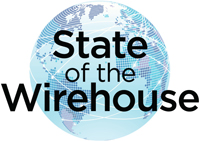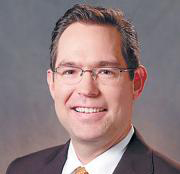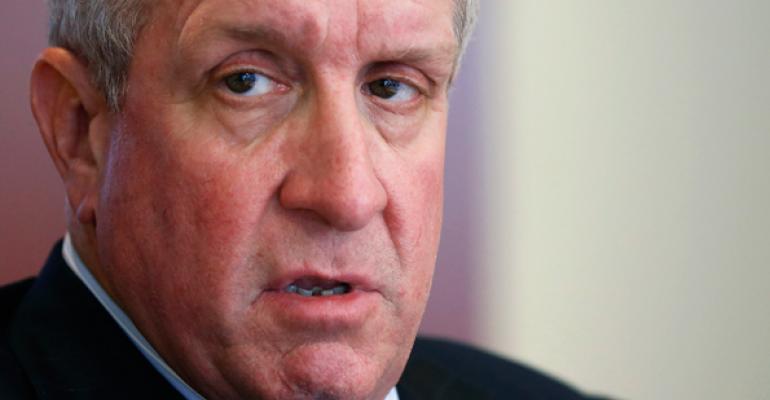WealthManagement.com: Firms’ credibility with clients, particularly those attached to banks, took a hit following the financial crisis. Five years later, have the firms earned back client trust?
BM: The firms are slowly and surely earning some of their credibility back, but there is still a ways to go. There was obviously a lack of trust within the industry a few years ago that remained and was prevalent with the press or with the politicians. And whether warranted or not, perception is reality. The hit, if you want to call it a hit, was never taken at the financial advisors. I’ve always said that the financial advisors were the folks that helped pull us out of the abyss and I still do believe that. Had it not been for the financial advisor, I’m not sure we would be here today. So I have a great deal of respect for what they do and what they’ve done to help shape the opinion around our firm. Our brand is clearly centered around our FAs and that’s probably where it should be.
WealthManagement.com: With the consolidation and mergers in recent years, what’s next for the wirehouses?
BM: Let me answer that first by saying I detest the word wirehouse. It’s a word that was used 20 or 30 years ago that totally mischaracterizes what we do. And I actually look at us as very holistic wealth managers. It’s very, very different. We are not a firm that the preponderance of our business is creating a proprietary product and selling it. Our business is in creating customized solutions for the clients and getting them to their goal. The whole notion of the wirehouse, at least in our firm, has gone away. I don’t work for a wirehouse.
With regards to mergers, I think that the events of 2008 and 2009 have shaped the industry for the foreseeable future. I really don’t see much more in terms of mergers today or again in the near future. We are where we are.
I can only answer for us, of course but the strategy of our firm is much, much more quality over quantity. We don’t think we win with thousands more people. We think we win if we slowly grow our sales with quality FAs over a period of time. I don’t really have a hiring goal. Some of the other larger firms are hiring over 1,200 newer FAs every year. We only hire 200. To us, every hire we make is the most important. I don’t think we have to be bigger to be the best.
Wealt hMangement.com: UBS CEO Bob McCann has repeatedly said he’d like the firm’s advisor force to hover around 7,000. Why not larger? What’s the strength in that size?
hMangement.com: UBS CEO Bob McCann has repeatedly said he’d like the firm’s advisor force to hover around 7,000. Why not larger? What’s the strength in that size?
BM: Let me go back and start with the number first of all. When I got here in November 2009, we had just about 7,100 advisors and today we have just about 7,100 advisors. So we’re pretty much exactly where we were. Our goal number one is keeping our good advisors. That’s actually rule #1, #2 and #3. You can’t sustain a good business model with a revolving door.
Our goal really is, and I say this a bit tongue in check, to be the largest boutique on earth. We have the highest productivity right now, we have the highest assets under management, we have very robust net new money and we have highly competent and good, productive financial advisors. All firms have a scarce commodity called “resources.” You want to get these resources to your best financial advisors who then will get them to their best clients. I think in some ways, scale dilutes that.
So [our size] allows us to have a couple of things. I do believe it cuts down a lot on bureaucracy. I think it allows us to be much, much closer to our FAs and work with them as partners. There’s probably not a day that goes by that I won’t help or support an FA in some issue relative to a client or their business.
It’s interesting to me that since the third quarter of 2010, where I actually think the turnaround occurred, we started a different trajectory. Our net number of FAs has grown, very slightly but positively, every single quarter. Now we’re ten quarters into that. I do believe it’s important to grow.
WealthManagement.com: Other wealth management units on the street are also doing well, production and assets per advisor are up. What’s behind the success? Is it just the market doing better to everyone’s doing better? Or is the wealth management component a bigger piece of the puzzle?
BM: That is the $64,000 question. To us, if we have a smaller total number of FAs, what becomes incumbent then is number one, we have the most productive. But number two, is that we grow our productivity faster. And I ran some numbers of us versus our some of our competitors and our productivity per FA, on the same number of FAs, has grown at a much more rapid pace. That to us is number one. Keep your good people and help them be more productive. Now to accomplish that is done in a number of ways. Some of is tied to the relevancy of the products, services and solutions you give to them to give to clients.
Much of it is done through the environment you create. It’s how you feel about yourself coming in every day and your firm. I actually think that the mangers are very important in this, and the environment they create in the office.
WealthManagement.com: There’s been a shift away from terms like securities, stockbrokers and reps and an embrace of terms like financial advisor and wealth manager, as well as a focus on high net worth clients. Has that contributed to these higher production rates and the $1 million revenue mark?
BM: That’s one of more important initiatives right now. We actually call it Advice Beyond Investing. It’s making sure that we are helping our clients in the later stage of their lives, whether it is long-term care or insurance or financial planning or the use of other vehicles to pass wealth to heirs or philanthropy. That’s a very important part of the business right now.
The second point is that all of that business is non-correlated to the market. I don’t want to have a business that’s totally controlled by a market level going up and down. I want to have a business that’s tied more to a client need and our ability to satisfy it. It will go up and down as those markets move one direction or another, but we still do need long term care, insurance, banking products and other things that buffer us against the volatility.
WealthManagement.com: Recent reports show that the advisor population will continue to shrink, with Cerulli reporting 25,000 advisors will exit the industry by 2017. What is the impact here for you? Is it a pressing concern?
BM: I can only tell you from my point of view, it’s not something that keeps me awake at night. As I said before, the number of financial advisors we have [hired] for the last two and a half years has gone up slightly every quarter. And our ability to slowly grow very good quality advisors, without having to hire too many new advisors, has been really good. To me, I have not seen any piece of that problem whatsoever.
There’s a lot of talk about a lot of advisors going independent. In the last few years, the number of FAs who left here to go to an independent, I could probably count on my hand. Interestingly enough, what we to do is try to provide an environment here, albeit again a smaller environment, where our brand revolves around the FA. We offer what we call Advisor Marketing Central, where FAs can specifically brand themselves as to what they do different and better. We’ve almost created an environment that looks like an independent within a larger firm. So we’ve had very few FAs leave to go independent. I don’t think we’ve given them a reason to do that.
When I used to work at Merrill, we had double the number of financial advisors. And basically what we liked and expected them to do was to be the same. And it worked at the time. It was probably the right thing to do. But at this specific time, financial advisors are not all the same. The business is much more complex, people do different types of business and they team up together to try to give clients access to more. And with that the emphasis really has to be on the FA and/or the team. That’s very, very different than what I used to deal with in the past.
The most important point I could make is that we don’t demand our advisors all do the same thing. We allow them to operate differently, maybe a little bit more entrepreneurially, [so] that they can distinguish themselves from the person who sits next to them at UBS or the person who sits down the road at another firm. That is a major difference.
WealthManagement.com: What regulatory efforts--for example FINRA’s proposed recruitment bonus disclosure rule and a uniform fiduciary standard--do you see making the most waves?
BM: It’s very hard to comment until I know exactly what the wave is. None of those have been finalized. Even on the disclosure aspect of recruits, they haven’t said exactly what needs to be disclosed. More importantly, we’re in favor, conceptually, with most of the proposals that are being put on the table. I have, and we have as a firm, publically said we are supportive of whatever client disclosure that is necessary for them to make the best judgment they can on where they deal and who they deal with. I have no problem with any aspect of the disclosure part with FINRA.
With the SEC or the fiduciary, again, I and we as a firm are very much onboard with doing what’s in the client’s best interest. But some of the rules, whether by the Department of Labor or the SEC, would actually do things not in the best interests of clients. If it wouldn’t allow us to buy something in an ERISA account that was out of inventory that would be in the best solution for the client, I just would like for the bodies who make these rules to be aware of the fact that there are some unintended consequences that could actually hurt clients.
As far as hurting profitability, our side of the business in wealth management is one that will continue to be a growth business. Based on what I see or hear from the SEC, relative to proprietary trading or whatever, it could be an impediment to the institutional side of the business. But we’ll see how that goes.
Check out the rest of our State of the Wirehouse Q&As:








